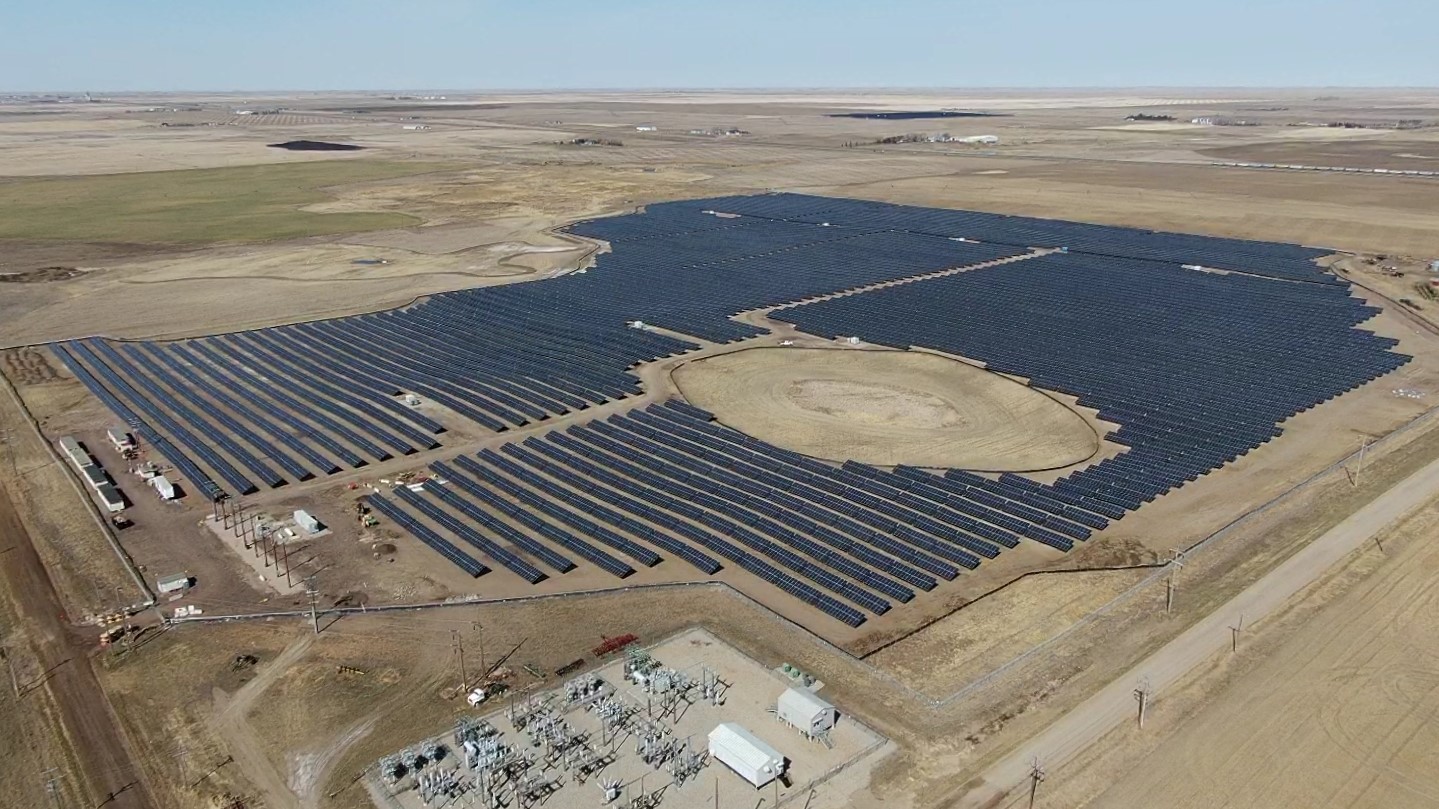
If you follow green energy news – or Bullfrog’s newsletter – you’ve probably seen the term “power purchase agreement” come up. But what is a power purchase agreement, or PPA? Who can sign one, and how do they contribute to the renewable energy transition?
We’ll answer those questions here and show you why power purchase agreements are an important part of the sustainability toolbox.
Simply put, a power purchase agreement is a long-term financial agreement between an energy buyer and an energy seller. The buyer guarantees the seller a fixed price for energy from a renewable project that hasn’t been built yet. This fixed price guarantee helps the energy seller secure financing for their new wind or solar project.
Power purchase agreements can be physical or virtual. With a physical PPA, the seller delivers electricity directly to the buyer. The buyer is usually an organization that uses a lot of electricity in one place, like a data centre.
A virtual PPA is a financial agreement, not a contract for physical power. In a VPPA, the buyer continues to purchase electricity from its utility as usual, and the developer sells its electricity to the grid at market price. If the market price is lower than the fixed PPA price, the buyer pays the difference to the seller. If the market price is higher than the fixed price, the buyer makes a profit. In both cases, the buyer receives renewable energy certificates (RECs) to lower its carbon footprint.
Virtual power purchase agreements are ideal for organizations with widespread operations, like banks. VPPAs are also a great option for organizations in regulated markets that want to take advantage of renewable development opportunities in Alberta’s deregulated market.
Power purchase agreements come with environmental, financial, and brand benefits. On the sustainability front, PPAs are a reliable way for organizations to meet their green energy commitments and help bring new renewable sources online.
On the financial side, PPAs are often more affordable than other ways of procuring renewable energy. Power purchase agreements involve some financial risk, but the right mitigation strategy can protect your organization from market volatility and provide insulation against rising energy costs.
Signing a power purchase agreement can also position your brand as a sustainability leader. Because these agreements lead to the construction of a specific wind or solar facility, they provide tangible proof of your company’s sustainability progress and great storytelling opportunities.
PPAs prove that consumer demand for renewable energy exists, which helps developers finance and build more renewable facilities. These agreements allow companies to contribute directly to the green energy transition.
Power purchase agreements are already driving significant renewable growth, and they’re gaining popularity exponentially. According to Business Renewables Centre-Canada, 2019 saw Canadian organizations contract for 246 MW of renewables, more than five times the contracted capacity from all previous years put together.
Demand quintupled again in just two years. In 2021 alone, Canadian organizations contracted 1,262 MW of wind and solar deals. For context, Alberta’s largest natural gas-fueled power plant, the Shepard Energy Centre, has a capacity of 800 MW.
![]()
"PPAs are an important tool in the climate action toolbox," says Nagwan Al-Guneid, Director of Business Renewables Centre-Canada. "They help bring more renewables online and have contributed to reducing emissions from Canada's grid much faster than could otherwise have been accomplished. Not only that, but they are an economic win too: private renewables investment will support $3.75 billion in construction by 2023 and nearly 4,500 jobs that come with it."
The end result of a PPA and Bullfrog Power’s green electricity product is the same: the buyer receives high-quality renewable energy certificates and can proudly say that they’re purchasing green energy.
PPAs are complex, long-term deals that are best suited for large power users with some energy expertise. In return for the upfront effort of signing a PPA, these agreements offer insulation against rising energy costs, as well as potential cost savings. Our green electricity, on the other hand, is a turnkey solution for businesses of all sizes and experience levels.
Do you think a power purchase agreement is right for your organization? Learn what you need to know before signing one or explore our power purchase agreement solutions below.